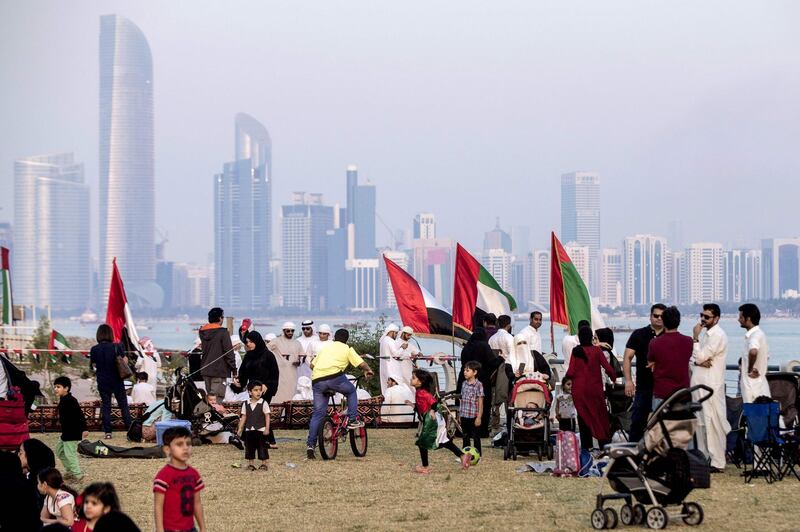Tim Fox, the head of research and the chief economist of Emireates NBD, talks about the outlook for the UAE in the coming year.
What are your forecasts for the UAE economy in 2018? How will that growth vary between Dubai and Abu Dhabi?
The UAE’s economy likely grew 2 per cent in 2017, down from 3 recorded in 2016. The slower growth rate was entirely due to cuts to oil production, in line with Opec’s overall strategy to limit output and reduce excess supply in the global crude market – a strategy that supported the recovery in oil prices last year. The outlook for 2018 is constructive, and we expect growth to accelerate to 3.4 per cent. The oil sector is expected to contribute positively to overall GDP growth next year, as several GCC countries have indicated they will look to boost crude output gradually in the second half next year. Non-oil growth will likely be driven by public sector infrastructure investment rather than consumer demand. Our assumptions are for Dubai to grow by 4.2 per cent and for Abu Dhabi to grow by 2.9 per cent in 2018.
What are your forecasts for oil prices? How will the continued production cut deal impact government revenues?
We are projecting Brent to average US$56 per barrel up from $51 per barrel in 2017. The improvement in oil prices should continue to help boost government revenues next year, seeing budget deficits across the region fall. Higher oil prices in 2017 have helped the UAE’s fiscal position, and the budget deficit probably narrowed to around minus 3.4 per cent of GDP last year, from minus 4.3 per cent in 2016. Indeed, the UAE’s fiscal discipline and a more diversified revenue stream has resulted in it achieving the smallest budget deficit in the GCC in 2017. We expect a further narrowing of the UAE’s budget gap next year to minus 1.4 per cent of GDP, despite a forecast rise in government spending, as a result of both higher oil and non-oil revenue. Even with a stable oil price (averaging $56 per barrel in 2018 and $55 per barrel in 2019), the UAE’s budget should return to surplus in 2019.
_____________
Read more:
Energy year in review: Middle East oil majors gain optimism
UAE moves to attract global health innovators
_____________
How will the introduction of VAT impact economic growth?
Households are likely to remain cautious when it comes to consumption in view of the new 5 per cent Value Added Tax (VAT), with growth being driven more by infrastructure spending next year. We expect inflation to accelerate to 3.5 per cent on average in 2018 from around 2 per cent in 2017 due to VAT.
Will higher infrastructure spending mainly impact Dubai, or will the economy as a whole benefit?
The 2018 Dubai budget makes provision for a sharp rise in infrastructure spending next year, focused on Expo 2020 projects and transport infrastructure. We also expect increased spending in other emirates to support ongoing projects, to the benefit of the UAE economy as a whole.
How will US interest rate rises impact the UAE economy in 2018, at a time when the country could benefit from looser monetary policy?
Monetary policy looks set to tighten further in 2018 consistent with an expected three 25 basis points interest rate rises by the US Federal Reserve. However, the pattern of recent years has been a compression of the spread between UAE and US interest rates, such that the gap is now the narrowest it has been since 2008. This looks set to continue meaning that the UAE may not see the full extent of the Fed’s tightening being passed on to consumers.
Tim Fox is the head of research and chief economist at Emirates NBD






